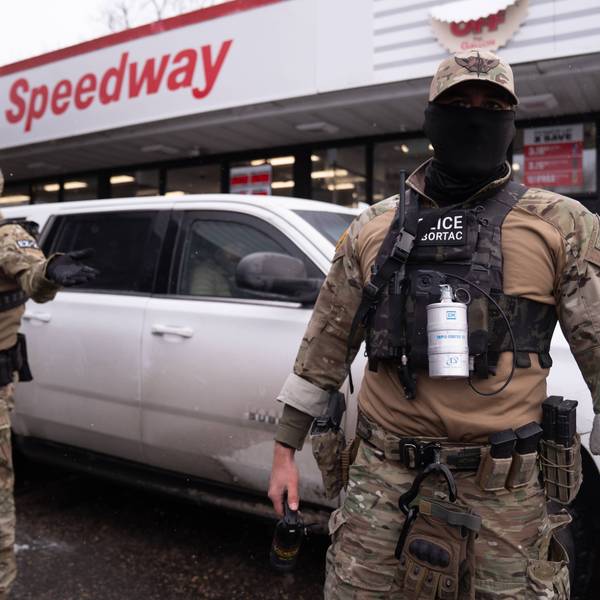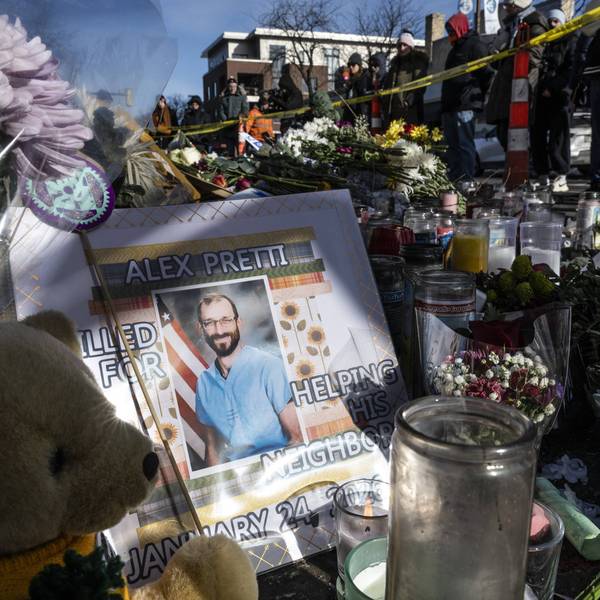Six weeks before Donald Trump takes office, there are growing fears about what he is likely to do with America's powerful law enforcement apparatus. He has proposed banning all Muslim travel to the U.S., elevated a national security advisor who peddles in untruths about the spread of Sharia law, and endorsed jailing protestors and stripping them of their citizenship for burning the American flag, an act protected by the Constitution.
Local and state police departments may find their authority magnified in a Trump presidency--but they would do well to consider carefully the effect that embracing the President-elect's rhetoric would have on their relationships with the communities they serve and defend.
This risk is particularly high in the surveillance realm. Police departments have access to a broad range of surveillance technologies, many of which have legitimate public safety applications. Without proper management and transparency, however, their use can undermine public trust in the police. For example, cell phone trackers, popularly called Stingrays, enable police not only to locate individuals, even inside a private home, but to identify participants in protests or demonstrations. Until recently the Federal Bureau of Investigation demanded police departments sign restrictive non-disclosure agreements in exchange for getting access to Stingray devices, essentially blocking the release of information to the public and even the courts, making it impossible to hold departments accountable for abuses.
Automatic license plate readers create databases of information about the innocent and guilty alike, allowing the reconstruction of individuals' daily movements. In Philadelphia, the local police tried to disguise a license plate reader truck with a Google Street View sticker. Boston police switched to an invasive and insecure method of license plate data collection that was revealed only by accident after a public outcry against the department's use of readers.
And in the age of Facebook, Instagram, and Twitter, many police departments subscribe to sophisticated social media monitoring programs. These tools can analyze networks of associations and deduce an individual's location, meaning citizens' standard use of social media can expose them to an invasion of privacy they'd have little reason to anticipate. Few jurisdictions have made their policies governing the use of social media for investigations or intelligence public, if they maintain guidelines at all.
This lack of transparency is coupled with the growing militarization of police departments, who are the beneficiaries of billions of dollars' worth of equipment deaccessioned by the Department of Defense at a time when crime is at the lowest level in a generation. The result is that police departments are arguably becoming both increasingly powerful and increasingly unaccountable.
This state of affairs is likely to be significantly amplified under President Trump. During the campaign, the President-elect called police the most mistreated people in the country--perhaps in recognition of some recent and reprehensible attacks on police officers, but not reflective of the actual statistics on officer safety or the mistreatment that marginalized groups face. He also declared that police needed to be given back "strength and power," and dismissed the Black Lives Matter movement as a group "looking for trouble." It is not a leap to presume that if tensions mount between law enforcement and civilians, the new administration will come down aggressively on the side of the police.
Indeed, shortly after the election, in the midst of mostly non-violent protests, Trump tweeted a mocking reference to "professional protesters," while David A. Clarke, Jr., the controversial Milwaukee sheriff whose name was floated as a candidate to head the Department of Homeland Security, shockingly endorsed a military response. Meanwhile, Trump's attorney general nominee has apparently referred to the American Civil Liberties Union and the NAACP as "un-American" and "communist-inspired" groups that "forced civil rights down the throats of the people."
This dynamic will pose substantial challenges to American police departments and their oath to protect the public trust and uphold the Constitution. Recent months have at times reflected the finest tradition of both public safety and positive police-civilian relationships, including police officers protectingprotesters. If national voices continue to delegitimize the American tradition of protest and activism, however, it may be tempting for police departments to strike a harsher tone. Law enforcement agencies will need to safeguard against being coopted by Trump's rhetoric, in order to retain the trust of the communities they defend and to continue to police effectively.
It will also be more critical than ever that elected officials, judges, and community groups remain engaged, exercise oversight, and demand transparency. More cities may take steps to establish mechanisms restricting or shedding light on their use of surveillance tools, as the cities of Oakland and Palo Alto, CA, and Seattle, WA, have recently done. Law enforcement agencies should welcome these steps: transparency will be the best way to carry out their commitment to accountability and public service, and to continue to build the positive community relationships that will be essential in the Trump era.
Cross-posted at The Daily Beast



